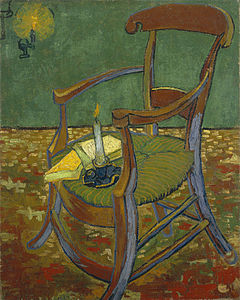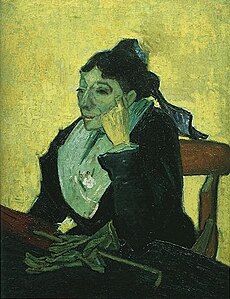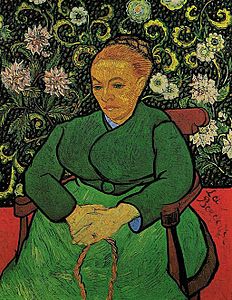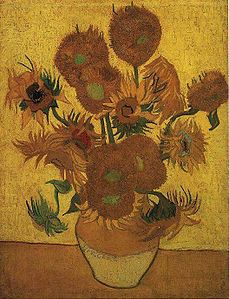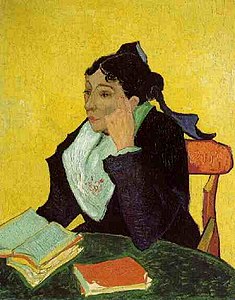Décoration for the Yellow House
This article needs additional citations for verification. (January 2017) |
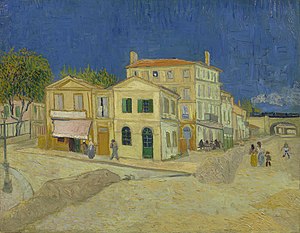
Décoration for the Yellow House was the main project Vincent van Gogh focused on in Arles, from August 1888 until his breakdown the day before Christmas. This Décoration had no pre-defined form or size; the central idea of the Décoration grew step by step, with the progress of his work. Starting with the Sunflowers, portraits were included in the next step. Finally, mid-September 1888, the idea took shape: from this time on he concentrated on size 30 canvases (Toiles de 30), which were all meant to form part of this Décoration.[1]
First idea: The Sunflowers, August 1888
[edit]-
Vase with Three Sunflowers
(Arles, August 1888)
Private collection -
Vase with Six Sunflowers
(Arles, August 1888)
Private collection, Japan, destroyed by fire in World War II on 6 August 1945 [1]
Second step: The Portraits, September – October 1888
[edit]-
Patience Escalier
(The Old Peasant)
Private collection
Third step and definite solution: The Toiles de 30-Décoration, October – December 1888
[edit]-
Public Garden
Kröller-Müller Museum, Otterlo -
Public garden
Phillips Collection, Washington D.C. -
Garden of the Poet III
(October 1888)
Private collection -
Railway Bridge
(October 1888)
Private collection -
In the Library
(November 1888)
Private collection
- For a related project by Van Gogh executed at the same time, in November/December 1888, see The Roulin Family series
Epilogue: The Toiles de 30, January – April 1889
[edit]Repetitions
[edit]-
La Berceuse
Museum of Fine Arts, Boston -
L'Arlésienne
Metropolitan Museum of Art, New York
Spring Subjects
[edit]Continuation
[edit]Later, in Saint-Rémy as well as in Auvers, size 30 canvases form the body of Van Gogh's work, and he continued conceiving series and groups of work based on this size. See The Wheat Field, the Copies by Vincent van Gogh and the Display at Les XX 1890, all from Saint-Rèmy, and the Auvers size 30 canvases.
See also
[edit]Resources
[edit]Notes
[edit]- ^ This fact, widely neglected for decades, recently seems to have become common knowledge; see Zemel, Schneede.
- ^ The Red Vineyard, the only painting van Gogh sold during his lifetime
References
[edit]- Roland Dorn (1990). Décoration: Vincent van Goghs Werkreihe für das Gelbe Haus in Arles. Georg Olms Verlag. ISBN 978-3-487-09098-6.


![Vase with Six Sunflowers (Arles, August 1888) Private collection, Japan, destroyed by fire in World War II on 6 August 1945 [1]](http://upload.wikimedia.org/wikipedia/commons/thumb/8/8f/Van_Gogh_Vase_with_Six_Sunflowers.jpg/204px-Van_Gogh_Vase_with_Six_Sunflowers.jpg)







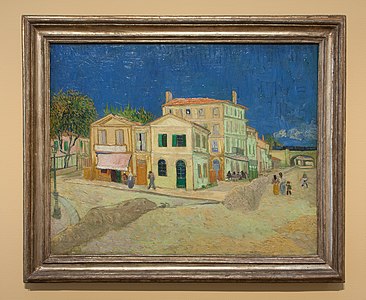


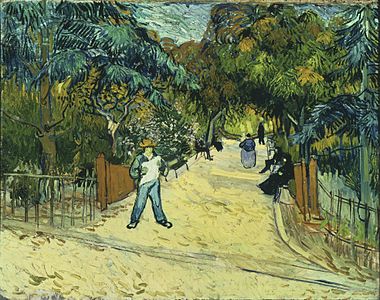

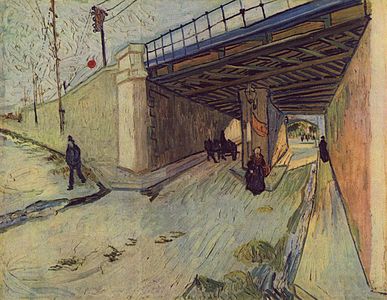


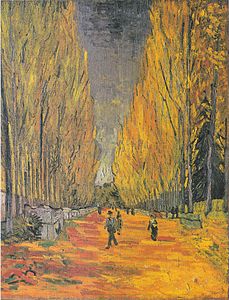
![The Red Vineyard (November 1888) sold to Anna Boch[2] Moscow](http://upload.wikimedia.org/wikipedia/commons/thumb/3/35/Red_vineyards.jpg/385px-Red_vineyards.jpg)

